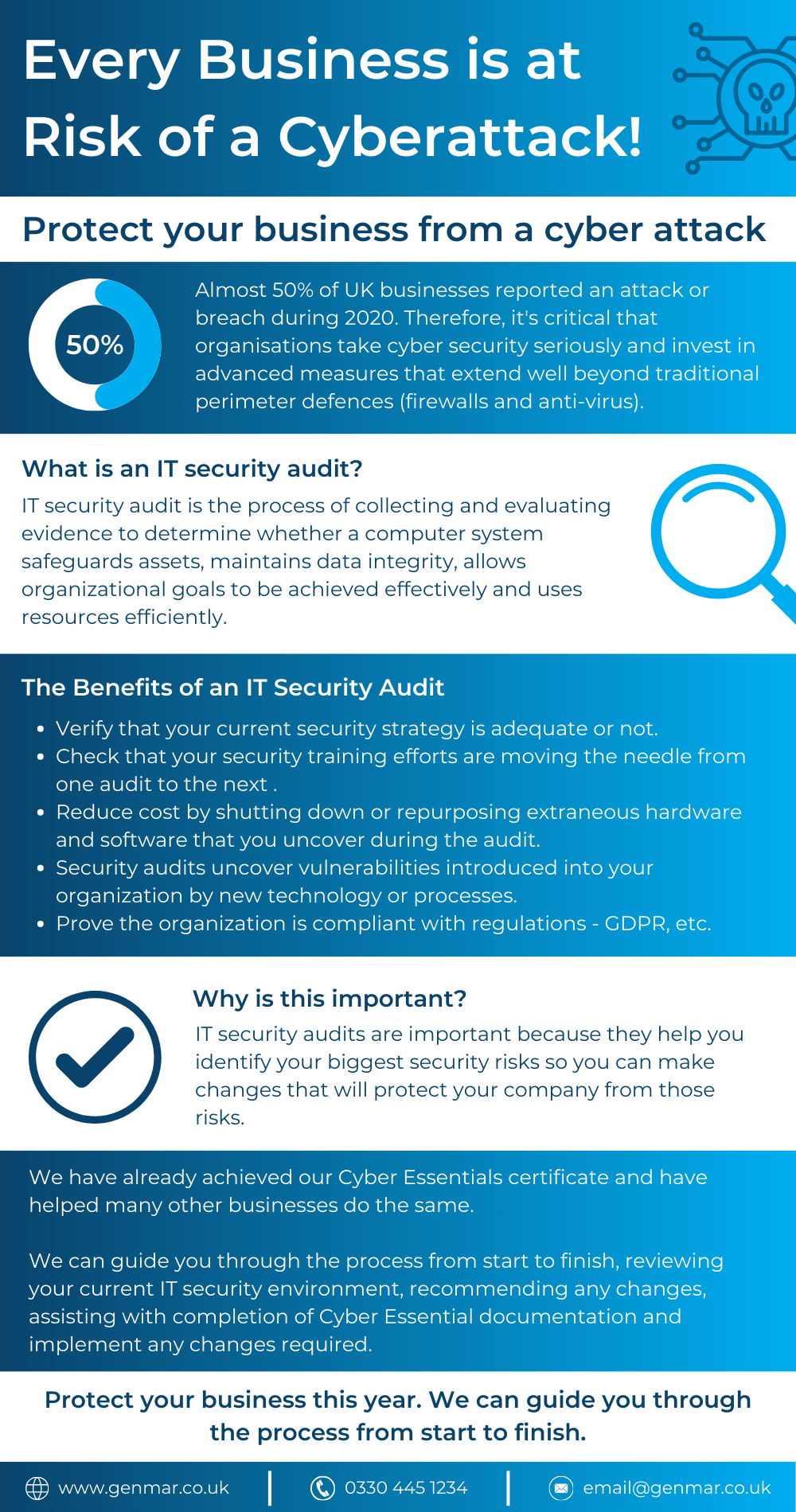Cyber Awareness Training
Cyber awareness training is an educational program designed to educate individuals within an organization about various cybersecurity threats and best practices. It teaches employees how to recognize and respond to phishing emails, social engineering attempts, and other online scams. The training aims to create a security-conscious workforce, enhancing the organization’s overall resilience against cyber threats by fostering a culture of vigilance, responsible online behaviour, and effective incident response.

Every business is at risk of a cyber-attack and due to a changing threat landscape we are seeing more and more attackers shifting their focus to credential theft and social engineering.
According to the 2017 Data Breach Investigations Report, more than 90% of cyber-attacks were traced back to human error.
The best way for business leaders and managers to combat this threat is to foster a risk-aware workplace culture, and that starts with cyber security awareness.
Cyber Awareness training focuses on informing employees so they understand what cyber threats are, the potential impact a cyber-attack will have on their business and the steps required to reduce risk and prevent cyber-crime infiltrating their online workspace.

Heightened Threat Recognition
Cyber awareness training empowers employees to identify and thwart diverse cyber threats, from phishing attempts to social engineering attacks. By honing their skills to recognise malicious activities, employees act as the first line of defence, significantly bolstering the organisation’s security posture and reducing successful cyber breaches.

Promoting Secure Data Practice’s
training initiatives, employees gain a deep understanding of data protection best practices and legal compliance requirements. This knowledge instils a sense of responsibility, ensuring that sensitive data is handled securely, reducing the risk of unauthorised access, data leaks, and potential legal consequences.

Improved Incident Response
Well-informed employees respond more effectively during security incidents. They can promptly report suspicious activities, enabling swift detection and containment of threats. Additionally, their understanding of established protocols enhances the overall incident response strategy, minimizing the impact of breaches and facilitating faster recovery.







































